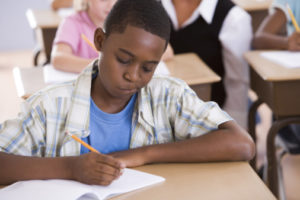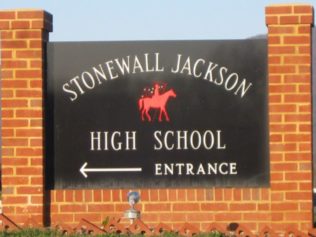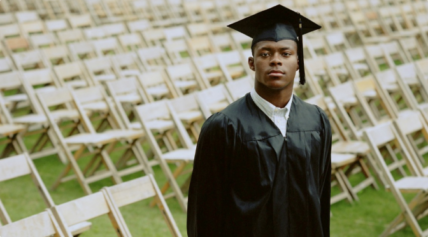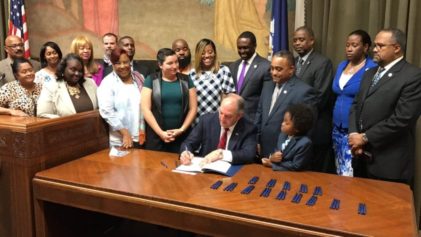
According to an article by Rebecca Klein, Huffington Post education editor, the study revealed Black students with behavior problems tend to be seen as a criminal problem to be handled by school security or the local police. White students with behavioral problems were referred to special ed classes or sent to the school counselor. Black students, especially males, are not given that leeway. When they act out, they are often thrown out of school or sent to youth correctional facilities.
Huff Post said the study, conducted by David Ramey, assistant professor of sociology and criminology at Pennsylvania State University, reviewed discipline statistics at 59,000 schools across the country. Ramey also looked at how many students were enrolled in special education classes. He found stark racial disparities in the way schools disciplined Black and white students.
“Ramey found that schools with larger populations of Black students also had higher rates of suspensions, while schools with more white students had a greater number of kids in programs designed for students with special needs,” reported Klein.
Ramey put forward several reasons for this disparity. He suggested low-income schools tend to have a one-size-fits-all approach to discipline. So when a student misbehaves, he gets thrown out of school, without a second thought. Suburban schools often have more resources on hand, counselors, special ed teachers, etc., to deal with problematic students.
“Where the population is more educated, parents make more money, housing values are greater, those districts tend to give a lot of autonomy to their schools,” Ramey told The Huffington Post.
The study also suggested expelling unruly students might be a way for school administrators to bring up those all-important standardized test scores.
“Some scholars have suggested that both the suspension and medicalization may be responses to standardized testing,” Ramey said. “If you suspend kids while they’re supposed to take the test, they no longer count against the school’s score.”
Ramey also blamed zero-tolerance policies established after a rash of school shootings in the 1990s. These policies give schools no room to suspend unruly students. In many cases, an infraction such as bringing drugs (even aspirin) or a weapon (even a nail file) results in automatic expulsion.
“There’s been a real push toward school safety and there’s been a real push for schools to show they are being accountable,” Ramey said. “But, any zero-tolerance policy or mandatory top-down solutions might be undermining what would be otherwise good efforts at discipline, and not establishing an environment based around all the options available.”
But what happens to Black students when they get expelled from school? Their behavior is not going to improve if they are sent back to unstable home environments. Oftentimes they are sent directly to youth correction facilities operated by local police. This is known as the school-to-prison pipeline. An infographic on the PBS website stated 70 percent of students involved in “in-school arrests” referred to law enforcement were Black or Latino.
A 2012 Department of Justice report found Meridian public schools in Mississippi had one of the worst school-to-prison pipelines in the country. Meridian was arresting mainly Black students for minor infractions such as violating the dress code, going to the bathroom without permission or being rude to an administrator.
“For six years or so, at least 77 children, some as young as 10 – all of them ‘children of color,’ says Jody Owens, with the Southern Poverty Law Center – were routinely arrested at Meridian schools allegedly on the say-so of teachers or administrators, handcuffed and taken to jail where they were held for days on end without benefit of a hearing, a lawyer, or understanding their Miranda rights,” according to Time magazine. “Their parents or guardians weren’t notified of the arrests until the children were in lockdown in a facility the SPLC says was a hellhole of abuse and neglect.”


